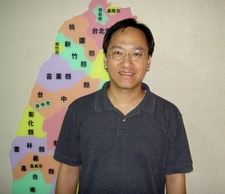
Professor Chen is Distinguished Research Fellow at the Election Study Center and Professor of Political Science at National Chengchi University in Taiwan. He is currently a visiting scholar of Top University Strategic Alliance (TUSA) at MIT. Professor Chen received his Ph. D. in political science from Michigan State University. His research focuses on political behavior, political socialization, research methods, and cross-Strait relations. He has published articles in Issues and Studies, Journal of Electoral Studies (in Chinese), Social Science Quarterly, and Taiwan Political Science Review (in Chinese). He is the editor of Continuity and Change in Taiwan's 2012 Presidential and Legislative Election (in Chinese, 2013), Public Opinion Polls (in Chinese, 2013), and co-edited The 2008 Presidential Election: A Critical Election on Second Turnover (in Chinese, with Chi Huang and Ching-hsin Yu, 2009).
Cross-Strait relations play an important role in electoral politics in Taiwan. Increasing economic exchange together with warming political engagements make today’s cross-Strait relations a very unique case in the study of public opinion in Taiwan. Because of the economic prosperity of China, people in Taiwan might consider the expansion of trade and other forms of cross-Strait exchanges beneficial to the prosperity of Taiwan. However, growing trade ties also mean that Taiwan’s economic reliance on the mainland increases day by day, and it could eventually result in political unification—an outcome that the majority of people in Taiwan do not want. The long-standing antagonism across the Strait, especially visible in their different governing systems and ideological attitudes, has produced something close to two separate countries and contrasting national identities. Dr. Chen was former Director of Election Study Center of National Chengchi University in Taiwan, and he will present long-term polling tracks to demonstrate how cross-Strait relations have affected electoral politics in Taiwan.

 RSS Feed
RSS Feed
